Featured
The Art of Problem-Solving: Shantanu Bhattacharya’s Journey from DNA to Data Science
Jun 14, 2021
9 mins read

There are some people who love what they do and there are others who love their work so much they decide to name their pet project after their daughter. Locus’s Chief Data Scientist, Shantanu Bhattacharyya belongs to the latter. But to call Shantanu a mere data scientist does not do justice to his extraordinary person and journey. He has a Masters in Biotechnology under his belt, a PhD in Nuclear Magnetic Resonance (NMR) and Molecular Dynamics (MD) Simulation and has worked on computational vaccine design for HIV at the Scripps Research Institute in California. Needless to say, this man has been around.
Locus’s geocoding engine EVA (Evaluation and Verification of Addresses) shares its name with Shantanu’s four-year-old daughter. Both are in the early stages of their life and getting better at interpreting the world around them. EVA is just one of the many herculean projects that Shantanu has worked on. It wouldn’t be a stretch to say that his presence is essential to Locus. His team’s work forms the foundation of every Locus product. But, how did it all begin?
Growing up without Google
For a person surrounded by tech 24/7, Shantanu grew up without Google or email. He did not have a computer at home till he was in the second year of college. Those were days when ‘cybercafe’ businesses were booming and made for an expensive trip. Even when you got a computer to yourself, it was used for surfing. It was when he saw his cousin struggling with some debugging, that Shantanu’s eyes lit up with interest. He found the whole process and the possibilities were very fascinating.
He wanted to learn how to code too but downloading a C compiler over a dialup connection wasn’t feasible. Sitting in a cafe close by he realized that it would take him about three hours to download the 32 MB compiler from the net. “And then I did something that still feels wrong, even today. I stole from my mom’s purse,” he admits. He downloaded the compiler, got it home in his prized 1 GB USB drive, a treasured gift from his then-girlfriend and current wife, and kickstarted his coding career.
No quick hacks
When Shantanu was growing up, his father worked with the government and his mother was a homemaker. Both were very supportive of his pursuits but not at the cost of education, which, according to them, was the most important part of one’s life. Everything else could come later. He speaks fondly of his father, “I think a lot of my early thinking is influenced by him. He didn’t care for the marks I was getting as long as I understood what I was saying, doing, and writing. This was particularly true when discussing mathematics. He didn’t want me to solve a hundred problems, just solve ten but understand why they are solved the way they are,” he said.
This made a huge impact on him. To understand why a certain system works the way it works was its own prize. His parents’ influence also explains his choices, then. The academic rigor came from his dad and the need to apply himself came from his mom who is a very practical person and believes that education just for the sake of education can be painful.
Do you even code, bro?
Why pick coding after all these years? “I found interest in it during my PhD. I realized that coding was not just a part of something I was doing but also something that I loved.” Gradually, his work in his grad school also shifted from experiments to using computational tools and hence the move towards computational design. Scripps is where he used his knowledge of both computational design and biology to work on the HIV vaccine.
Coding is bigger than ever these days and also highly commoditized. The popular perception is that some of the best tech jobs in the future will be about coding and so, not learning to code will limit your career options. Shantanu does not agree with this and is cognizant of the fact that many people may not want to get into the nitty-gritty of it.
So, coding remains a tool that can simplify your work but to think that you have to become a software engineer and make it a central part of your life is not true. Having said that, you cannot overlook its many benefits.
“I think the only limiting currency here is the imagination. When people start imagining things they quickly want to experiment with them. If you know how to code, the world will open up in new ways and your ability to experiment will become better and more frequent.
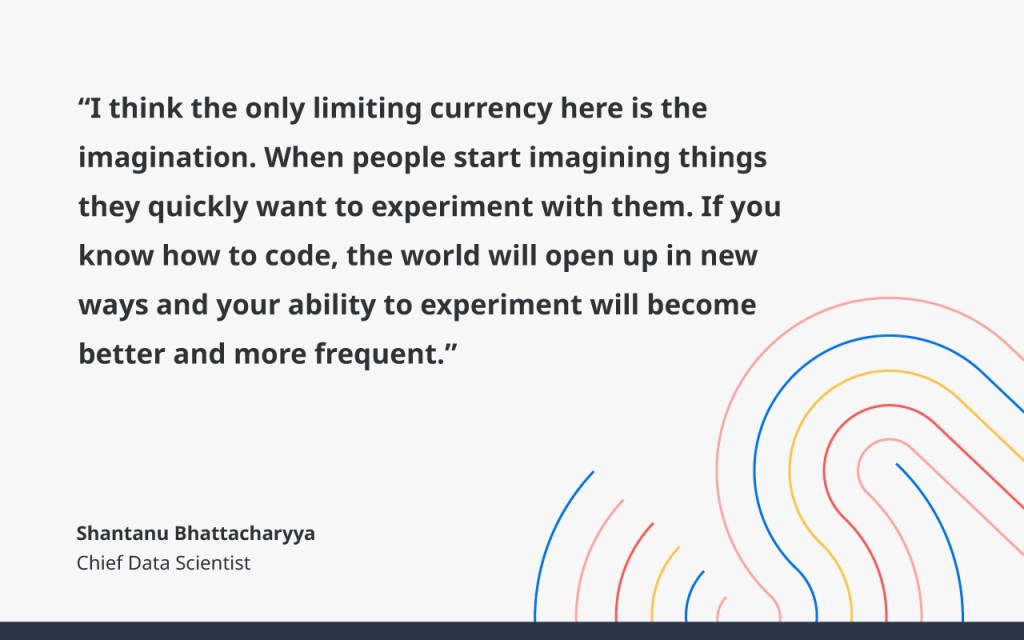
You wouldn’t want to be dependent on the tools that are provided to you and neither would you want to pay for them.”
The age of the internet is the age of access and you can download most programming languages and start coding with a snap of the fingers. The learning curve for getting a headstart in a language like Python is really small, and Shantanu thinks it’s a small investment for gaining this fantastic ability.
Know your business
When Data Science was growing popular, Shantanu would wonder what the whole fuss was about. Here he was, sitting in his lab, with science, looking at data. Wasn’t it the same thing? This thinking saw a tremendous change over the years. He breaks down Data Science into two components. One is the technical part of it: Can you visualize the data? Can you go through a large amount of data and make sense of it? This is the part where coding and training come into play.
But the second part, your business understanding and ability to imagine all the questions that you’re going to answer, is what sets you apart from the rest. Technical training is possible but developing a business acumen can be tricky. You need to understand the business that you’re in.
“You can have all the data in the world, but if you’re not asking the right questions it’s going to be tough. It is also hard to give training for this. Every business is different and all data is different,” he says.

Take the geocoding project, for example, Shantanu has had to study different markets. The tack needed to decode and map North America is different from, say, Indonesia. The Locus geocoder is set up to handle most countries without any additional input. But the performance can depend on a lot of things: how the address is formatted, how the streets are numbered, what’s the administrative hierarchy, what is the script used. Sometimes, research throws up a lot of local nuances that are incorporated into the geocoder for greater accuracy. “I remember taking a short trip to South East Asia just to incorporate this extra efficiency into the system. Of course, EVA is now smart enough to figure out many of these things on her own,” he says smilingly.
What makes a good data scientist?
“You need to start with a slight mistrust of data. You need to question everything that is in front of you and ask viable questions whose answers will allow you to make a viable difference to the business that you’re in,” he stresses.
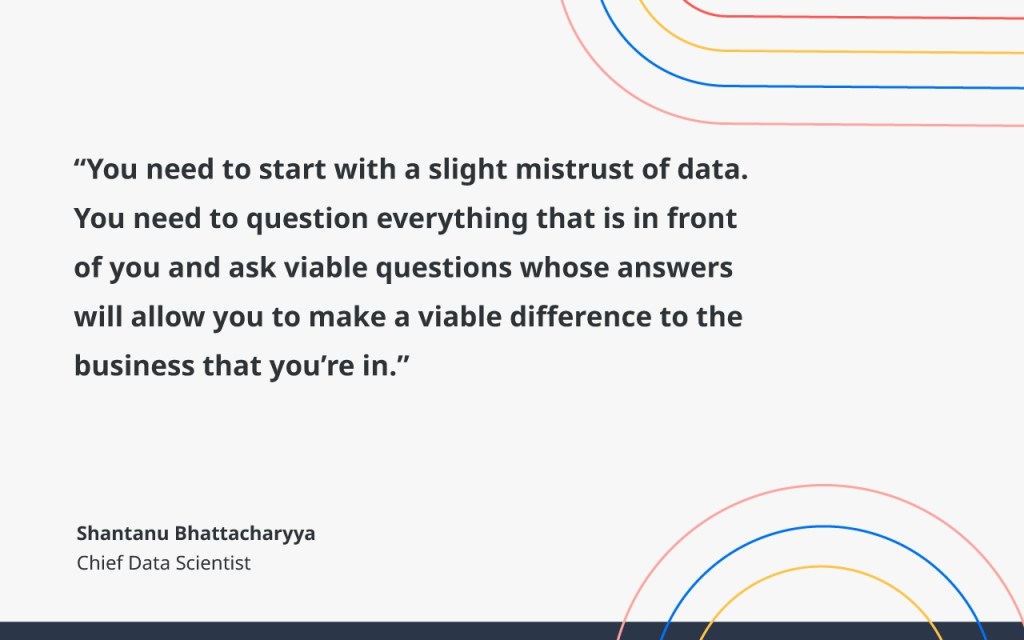
He speaks of the many fields that have an engineering component and a coding component. Anybody with access to resources should be able to decode the technical aspect of data science. This part explains why people from diverse backgrounds are drawn to data science.
The other bit is the people who are going to succeed. Companies need a lot of data scientists, and yet the hiring doesn’t move as fast. The reason for this is that matching business imperatives with technical know-how is not easy. To get there you have to start thinking like a businessman—as a marketing person who can tell good stories and at the same time have the technical strength to back them up with experiments.
According to Shantanu, the world connects in ways unknown and this showed up in his research at the Scripps Institute too. “In the case of antibody design, we’re looking for a pattern—an algorithm—that will get us to design a viable antibody extremely fast. So, essentially, we’re looking through millions of options, trying to find the best possible option, recreate it in the lab, and experiment on it. This is not too different from what we’re doing at Locus,” he says. A person can take millions of possible routes from multiple places to multiple places, and Locus is trying to find the optimal route from getting from one place to another. The basic principles involved in research are used for problem-solving as well.
Life’s programming
It is said that anything you do for a long time becomes a part of your personality. Did programming change the way Shantanu applied himself to problems? He agrees without hesitation and explains with the help of an example. Imagine that you are asked to make a coffee, you already know that you need to go to the kitchen, find milk, coffee powder, and sugar because this information has been ingrained in you over the years, but it isn’t the same for a machine. A machine has no human intuition. When one starts explaining something to a machine, one is forced to go over every possible instruction.
So, does this thinking become a part of you?
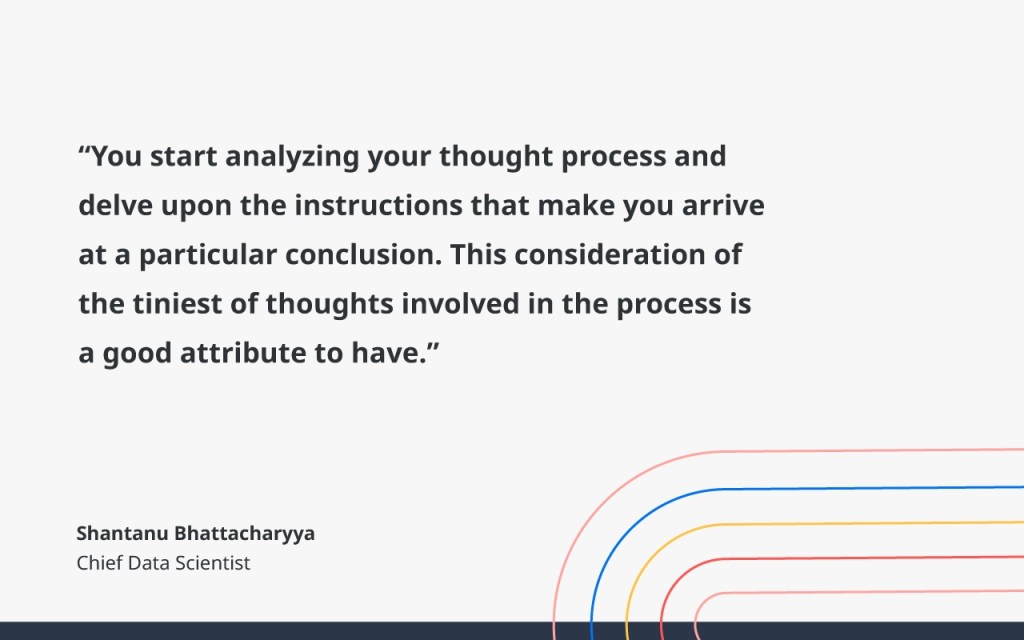
Indeed, any way of life that makes you pause and think about things a bit more must be a good one. Shantanu’s life is a great example of it.
Quick Questions

Also Read:
Using AI and Data Science to combat Covid-19
Liberalization of Geospatial, Mapping Regulation Policies
How can Geocoding increase your operational efficiency?
Related Tags:
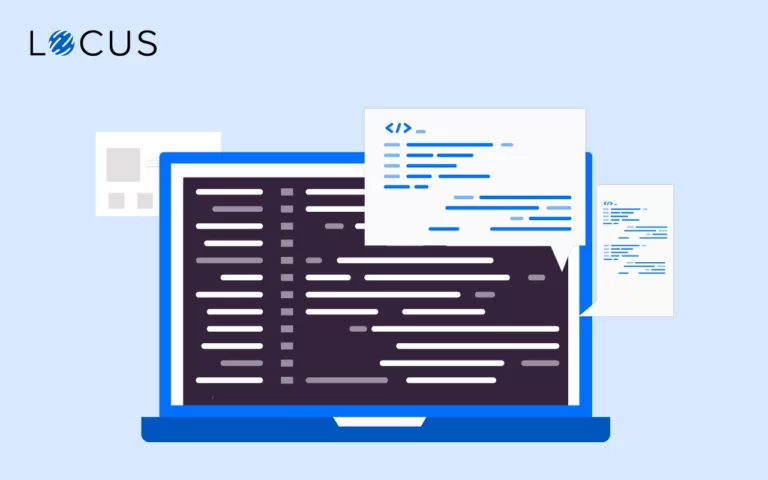
Tech and Product
How we wrote a pipeline abstraction module with one line of code
A declarative implementation of the pipeline design pattern for maintaining rapidly evolving and complex data science workflows. Motivation: At the core of all the products at Locus lie complex mathematical models and large workflows which are expected to perform at scale. None more so than our brand new strategic supply chain planning platform, Locus NodeIQ. […]
Read more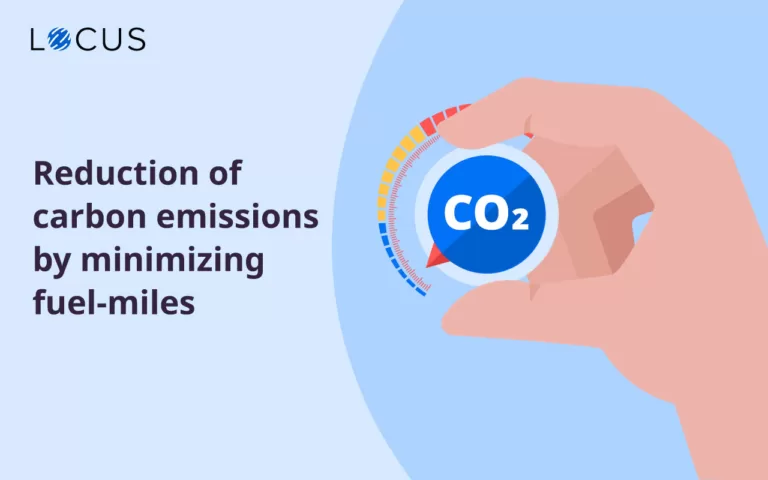
Featured
Reduction of carbon emissions by minimizing fuel-miles
Authors: Arpita Mishra and Zubin Pradhan Supply chain enterprises have the prime social responsibility of adopting sustainability measures and controlling the negative impact of logistics on the environment. In terms of global transport emissions, the road sector is by far the largest emitter, with passenger and freight transport contributing nearly three-quarters of the overall transport […]
Read moreMOST POPULAR
EDITOR’S PICKS
SUBSCRIBE TO OUR NEWSLETTER
Stay up to date with the latest marketing, sales, and service tips and news



The Art of Problem-Solving: Shantanu Bhattacharya’s Journey from DNA to Data Science